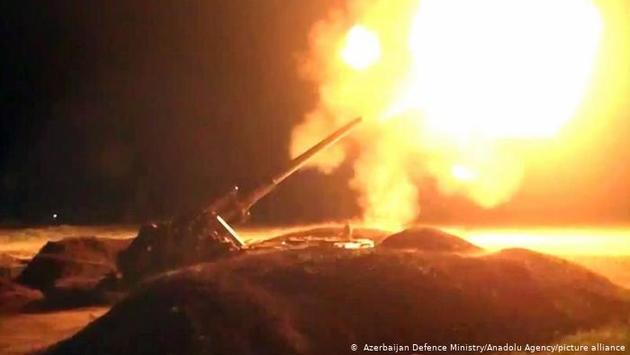Fighting between Azerbaijani and Armenian forces in the Caucasus continued overnight into Tuesday, following two days of escalation and numerous casualties reported in the disputed Nagorno-Karabakh region. The two sides have employed heavy artillery with both military and civilian targets being hit.
Deutsche Welle reports in its article Nagorno-Karabakh conflict: Germany's Merkel urges ceasefire as violence escalates that German Chancellor Angela Merkel called for an immediate end to the violence after speaking with the Armenian prime minister, Nikol Pashinyan, on Monday and the Azerbaijani president, Ilham Aliyev, on Tuesday.
"The chancellor ... urgently called for an immediate ceasefire and a return to the negotiating table," her spokesman Steffen Seibert wrote on Twitter.
The current fighting is the worse since the early 1990s, when a 1994 Russian-brokered ceasefire stopped the Nagorno-Karabakh War, which killed 30,000 people.
"The Armenian side continues to spread misinformation that it allegedly managed to return the previously lost territories. I want to state that all the territories liberated from the Armenian occupation during the fighting are held and controlled by the Azerbaijani military," Azerbaijan Defense Ministry spokesperson Vagif Dargyakhly told Interfax-Azerbaijan on Tuesday.
US Secretary of State Mike Pompeo said Tuesday that "both sides need to stop the violence" and "return to substantive negotiations as quickly as possible." The US and France have both said negotiations should be mediated by the so-called Minsk Group, which was set up in the early 1990s to resolve the ongoing dispute. It is co-chaired by France, Russia and the US.
"We will trigger in the coming days a co-ordination of the Minsk Group to clear up what happened, who is responsible and find a way out," an official at French President Emmanuel Macron's office said on Tuesday.






